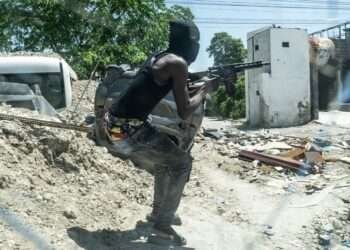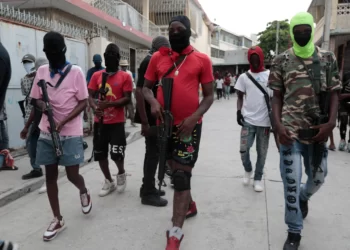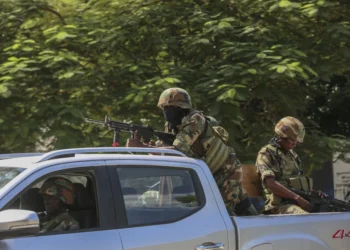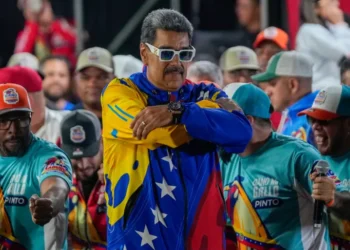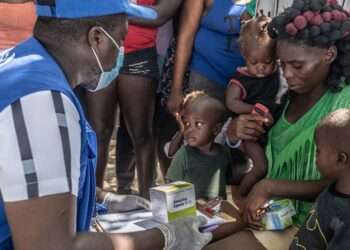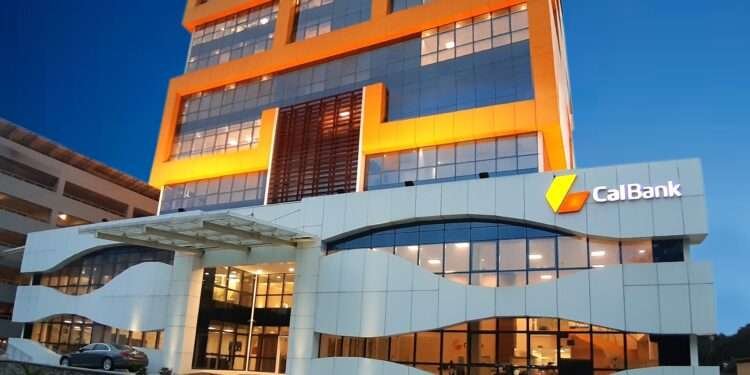Venezuela stands at a pivotal moment as voters head to the polls on Sunday, July 28.
The nation faces a critical decision: to reelect President Nicolas Maduro, who has navigated the country through 11 years, or to embrace the opposition’s promise of reform and recovery from the severe economic collapse that has forced millions to emigrate.
For the first time in decades, the historically fractured opposition has united behind a single candidate, presenting a formidable challenge to Maduro’s United Socialist Party of Venezuela (PSUV).
This rare unity among opposition parties brings a new level of intensity to the presidential race.
The main contender is Edmundo González Urrutia, a former diplomat representing the revitalized opposition.
He, along with eight other candidates, poses the most serious threat to Maduro’s presidency in recent history. The capital, Caracas, witnessed massive demonstrations from both camps as the official campaign season concluded on Thursday.
Maduro ending his campaign quizzed the crowd, “Who of the 10 candidates guarantees peace and stability?”
Maduro’s tenure has been marked by strategies to suppress opposition, including barring rivals from elections and portraying them as elitists in collusion with foreign powers.
This election, however, sees the Unitary Platform, a coalition of major opposition parties, participating — an unusual allowance by the ruling party.
A significant factor in this election was a deal that permitted the opposition coalition’s participation, temporarily easing the U.S. economic sanctions on Maduro’s government.
However, this relief was fleeting as the Biden administration reinstated sanctions, responding to escalating government repression against perceived adversaries, notably blocking the candidacy of opposition leader María Corina Machado.
Key Players and Stakes
María Corina Machado, although not on the ballot, remains a pivotal figure in this election.
Rising as an opposition icon in 2023, her fierce criticism of government corruption and mismanagement galvanized millions, making her a standout in the opposition’s October primary.
Maduro’s government, however, deemed the primary illegal, launching criminal investigations against its organizers and issuing warrants for several of Machado’s supporters.
The judiciary upheld her disqualification from the ballot, a move seen by many as emblematic of the rights violations endured by Venezuelans under Maduro’s rule.
Despite these setbacks, Machado continued her campaign, turning her exclusion into a powerful symbol of resistance. She endorsed Edmundo González Urrutia, a move that helped consolidate the opposition.

González, who has never held public office, brings a promise of economic reform aimed at reversing the mass exodus of Venezuelans that began during Maduro’s presidency.
González’s diplomatic career spans from an aide in Venezuela’s U.S. embassy in the late 1970s to ambassadorial roles in Belgium, El Salvador, Algeria, and Argentina during Hugo Chávez’s administration.
Recently, he has worked as an international relations consultant and authored a historical analysis of Venezuela during World War II.
Maduro’s presidency has been plagued by economic turmoil, exacerbated by plummeting oil prices, corruption, and mismanagement.
Despite retaining a core base of supporters, known as Chavistas, including public employees and those economically dependent on the state, his party’s ability to leverage social programs for electoral support has waned with the country’s economic decline.
The Voter Dynamics
With over 21 million registered voters, the prolonged crisis has led to an exodus of more than 7.7 million people, reducing the potential voter base to around 17 million.
Voting is conducted electronically, and although Venezuelan law allows for overseas voting, only about 69,000 expatriates have registered to vote.
This low turnout is due to costly and time-consuming government registration requirements, lack of information, and the necessity of proving legal residency in the host country.
As Venezuela approaches this critical juncture, the election represents more than a choice between candidates; it is a referendum on the future direction of a nation in turmoil.
READ ALSO: Finance Minister Confident in Managing Fiscal Affairs Without Supplementary Funding


